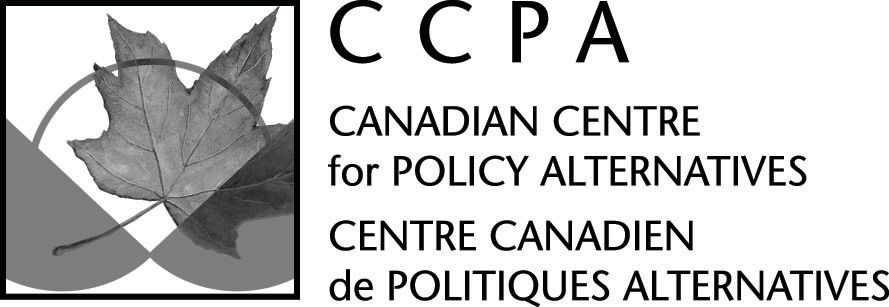Federal election primer:
Tax fairness edition

Interest is building in Canada around a number of bold, progressive policy ideas—everything from implementing universal single-payer pharmacare (as recommended recently by the Hoskins commission) to a rapid and just transition away from fossil fuels and towards a new green economy. But how can we afford to make these ideas reality, with rising costs of living a consistent concern in communities from coast-to-coast? Every year we publish an Alternative Federal Budget (AFB) that examines how the federal government could use its vast resources to improve Canada. Every AFB is fully costed and includes a tax chapter on how to pay for new or improved public programs. It’s not uncommon for our AFB ideas to end up in the actual federal budget. It’s also not uncommon for them to end up in election platforms.
As the next federal election approaches, we’re publishing a series of blogs that will lay out the AFB’s proposals in key areas like health, Indigenous issues, gender, environment etc.. Once all the party platforms are out, we’ll see how they stack up against our AFB.
This blog, the second in our series, covers fair taxation.
Taxes are the price of a compassionate, healthy, civilized society.
They are how we pay for the services we want and those services make possible the society and the standard of living we all enjoy. Income taxes are an important way that we reduce pre-tax inequality, but Canada’s tax system is still overly complex and riddled with loopholes that worsen inequalities and largely only benefit very high income earners. Tax loopholes almost always increase inequality, and we’ve got to keep a close eye on their design to make sure they are working towards reducing inequality instead of entrenching it further.
There is often an instinct to divorce the act of paying taxes from what they pay for: any promise to “cut taxes” inevitably glosses over what services will also be cut. The most common approach is to say the tax cuts will be paid by “back office improvements” or “efficiencies.” Anyone watching Ontario’s Ford government can see this inevitably ends up being front line service cuts. This means the poorest and most vulnerable lose their services to pay for tax cuts that almost always go to the richest. Sure, its nice to pay less tax, but if that will mean your local hospital will close, that’s a far less compelling option. If given the choice, Canadians will often opt to increase taxes to pay for newer, better services, as this collective method of paying for vital services is generally far cheaper than letting profit-seeking corporations run those services instead. Tax cuts, in the long run, won’t address concerns about the rising cost of living if it means whittling away frontline public services.
So how can we improve our tax system to both generate revenue for progressive programs and make the system fairer?
Our Alternative Election platform

1. Close unfair and ineffective tax loopholes
First, we need to eliminate the tax break on capital gains (which is presently 50%) so that those making money off capital gains pay the same level of tax as those who pay tax on working income. TFSA and RRSPs need to be capped so they aren’t being used as tax dodges for the rich, but rather for middle class retirement savings. We also need to eliminate the fossil fuel tax breaks that continue to this day.
2. Stop offshore tax dodging
International companies are shifting billions of dollars to offshore tax havens to avoid paying the taxes they’d owe if the money stayed in Canada. If companies want to shift money offshore, they need to prove that those subsidiaries aren’t just post-office boxes. We should cap the interest payments to tax haven subsidiaries, a common way to avoid Canadian taxes. Then we should apply a tax to the billions of dollars in corporate cash that is socked away in those tax havens. Finally, e-commerce companies should have to pay the same taxes that Canadian companies pay—like PST, GST and corporate income taxes—instead of getting an exemption that by comparison makes Canadian companies less competitive.
3. Increase corporate income taxes
Corporate Canada promised that any tax cuts they received would be invested in the economy. They lied. Instead, they cut their investments, boosted shareholder payouts, hiked executive pay, and then hoarded any cash left over. So let’s increase the corporate rate back to where it was in 2006 and actually invest that money in the economy through government programs. Let’s also implement a financial transactions tax on the finance industry to reduce the speculative pressures they put on Canada.
4. Ramp up the carbon price after 2021
We now have a national carbon price, a longtime AFB recommendation. But let’s not rest on our laurels: the carbon tax shouldn’t stop at $50/tonne in 2021. Instead it needs to keep increasing at $10/yr until we fully decarbonize the Canadian economy. We also need border adjustments so companies don’t skip out on the carbon tax they owe by importing high carbon items.
5. Introduce a wealth (inheritance) tax
Wealth inequality is much worse than income inequality (which is still pretty bad). Canada is the only country in the G-7 without an inheritance tax, and as a result we’re seeing family dynasties that retain wealth for generations. If you’ve got an estate worth over $5 million, its time for you to pitch in via an inheritance tax, just like in the U.S.
A better tax system isn't just possible, it's imperative

Decades of tax cuts have compromised the fiscal health of the federal government. Canada doesn’t have a spending problem; it has a revenue problem. Restoring fairness to the tax system would go a long way towards removing barriers to funding the bold policy solutions needed to address society’s most pressing challenges, towards improving public services and quality of life for us all.
David Macdonald is a senior economist with the Canadian Centre for Policy Alternatives. Follow him on Twitter at @DavidMacCdn.


